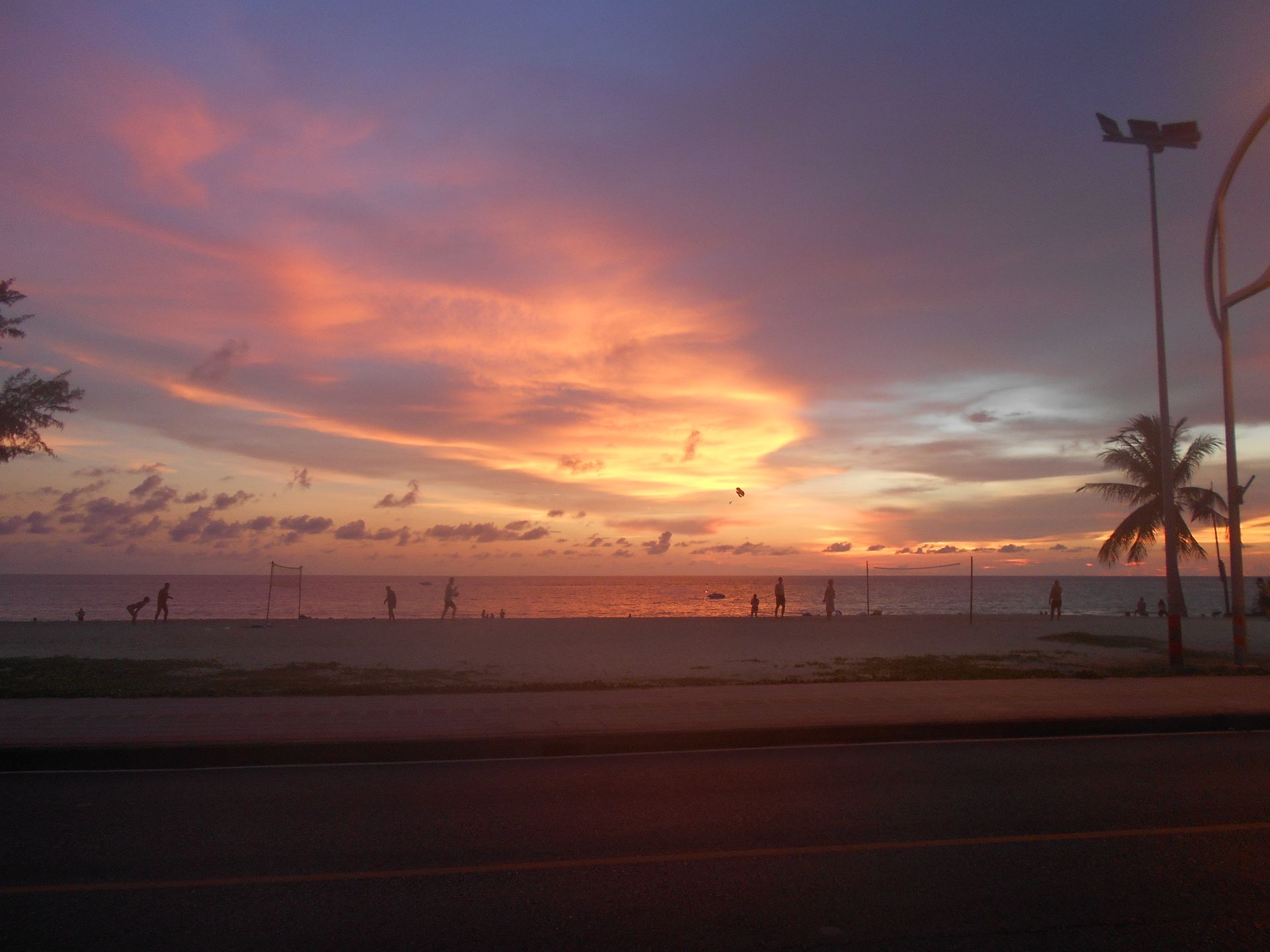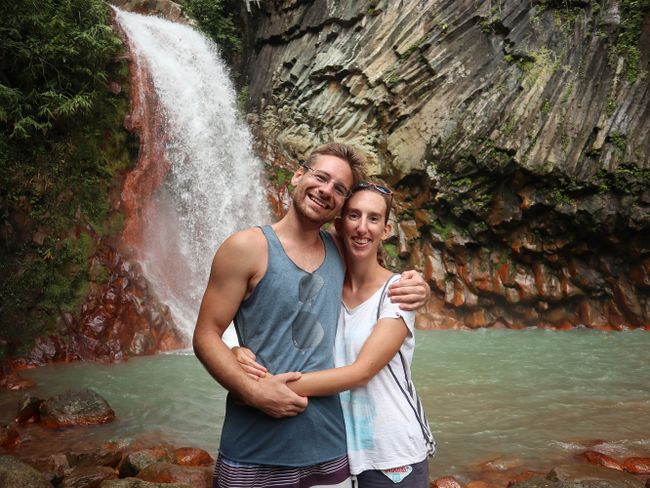Nizip and Karkamis (Border with Syria) (Day 2 of World Trip)
Argitaratu: 10.09.2019
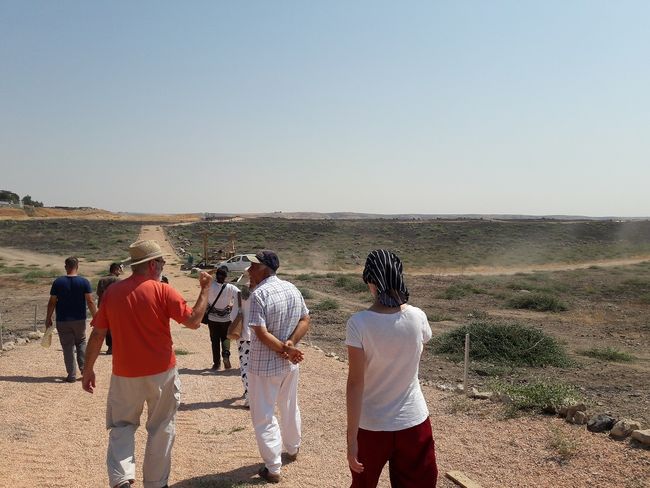
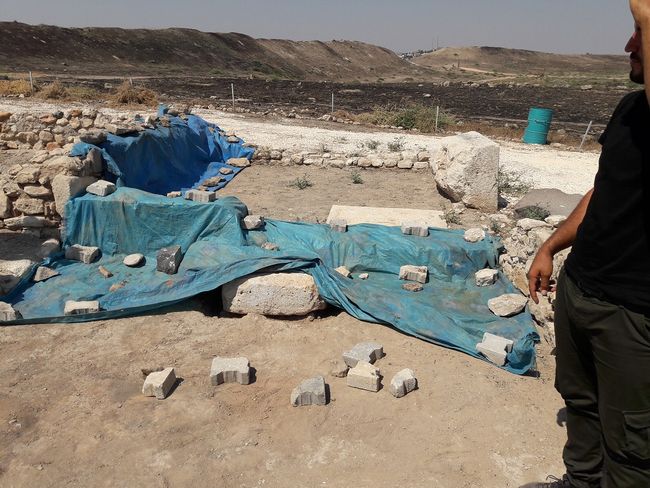
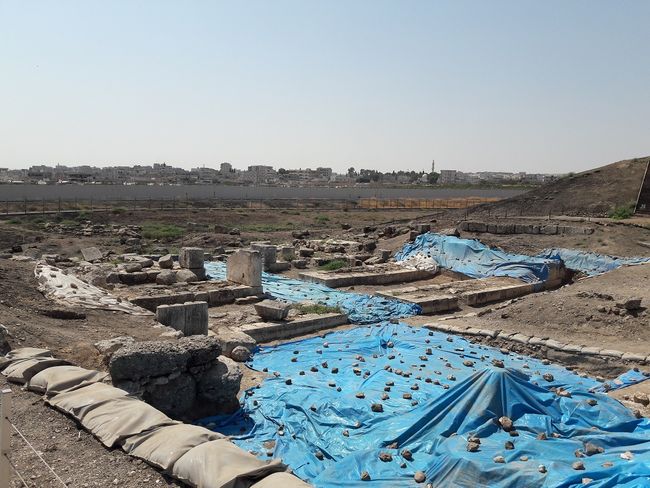
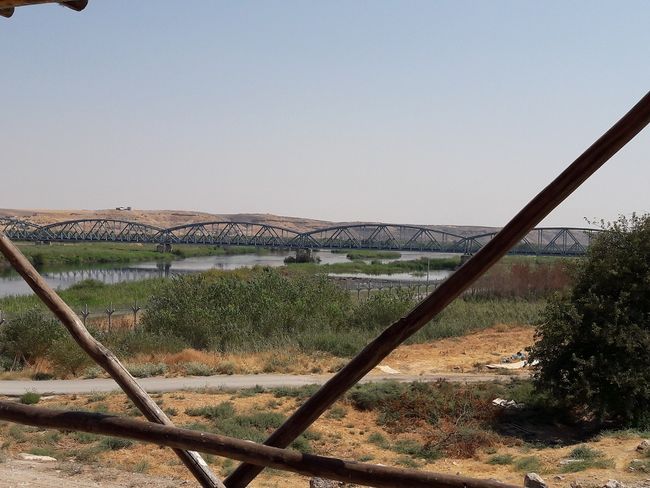
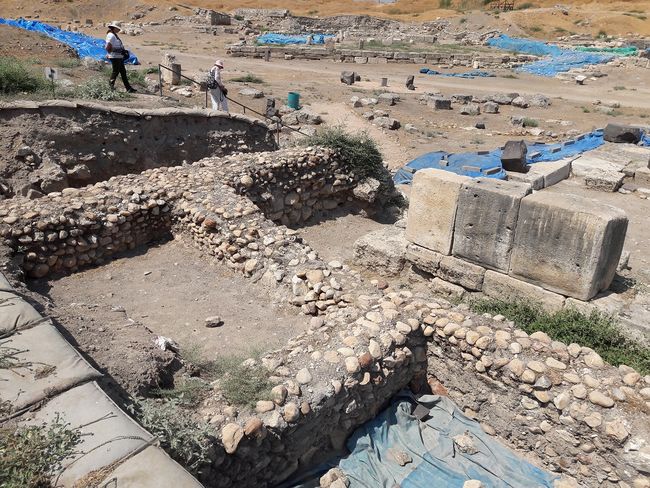
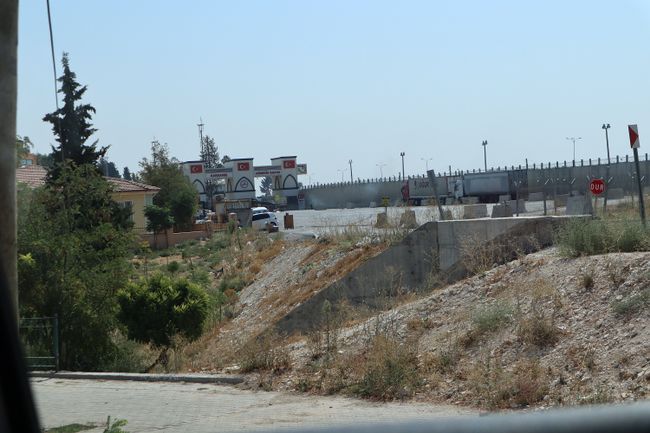
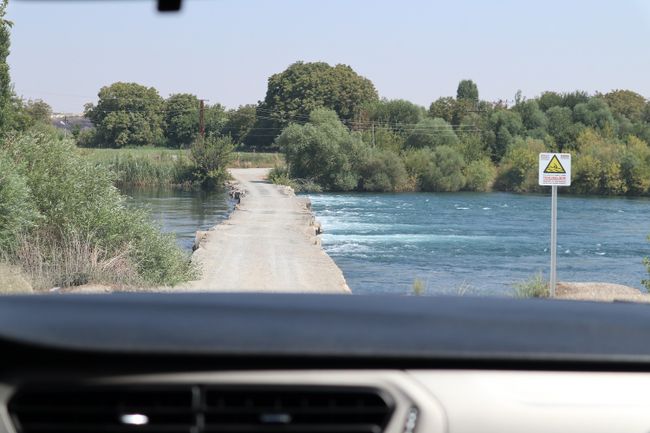
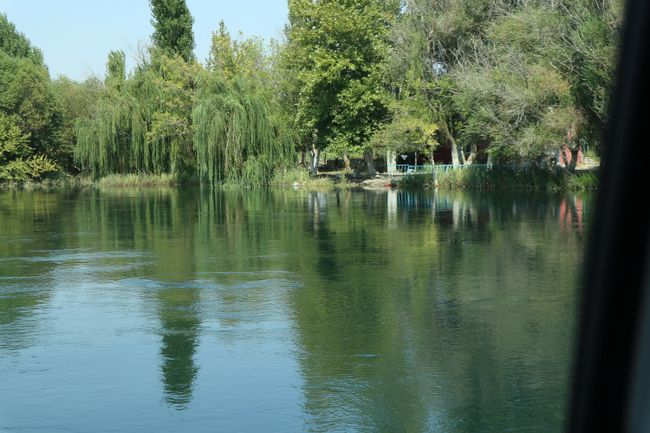
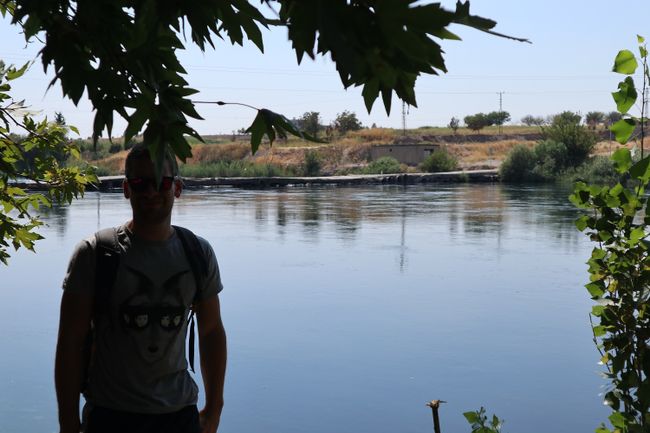
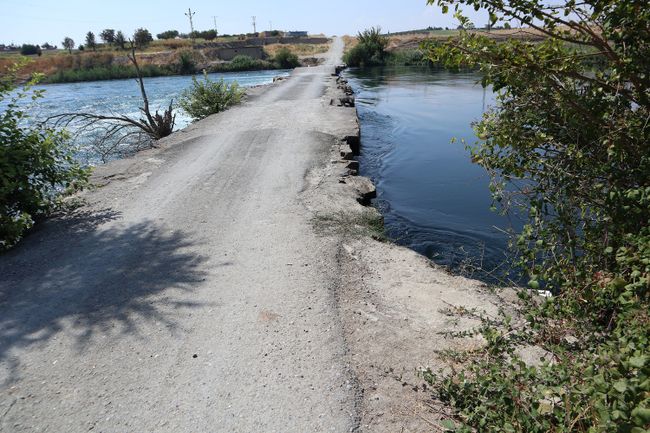
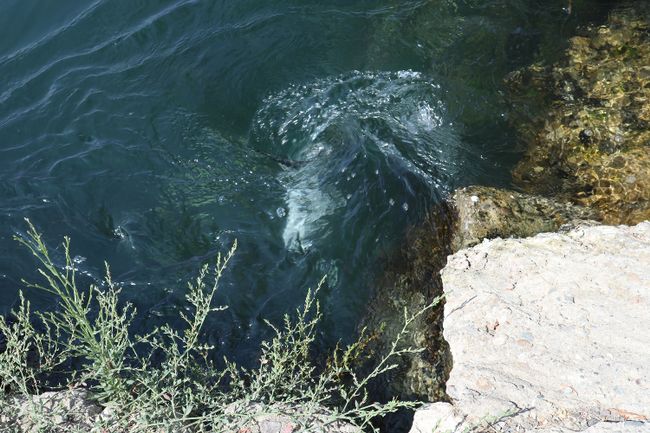
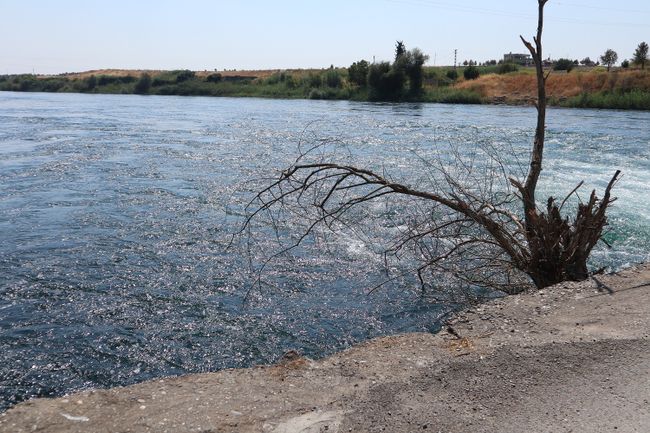
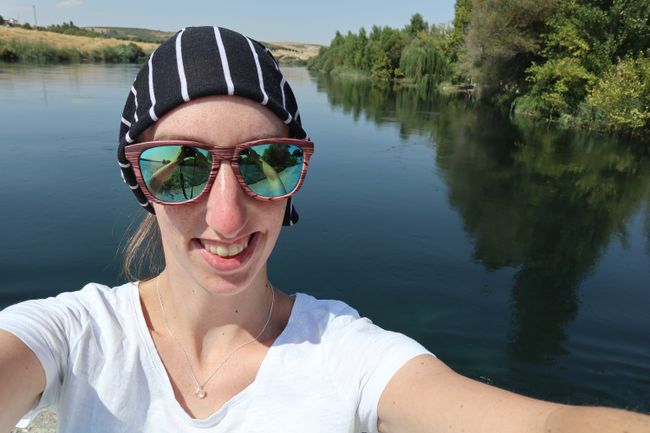
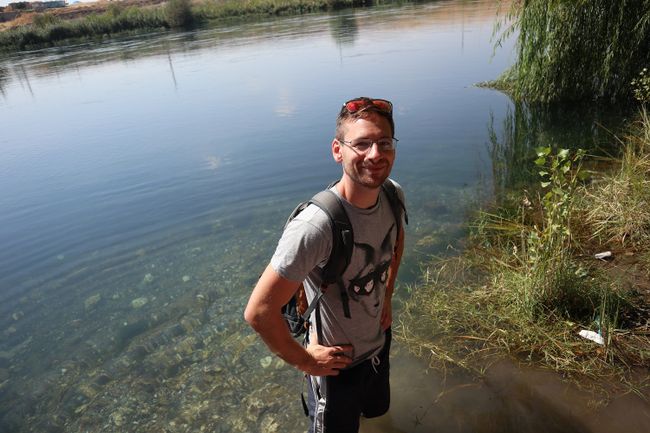
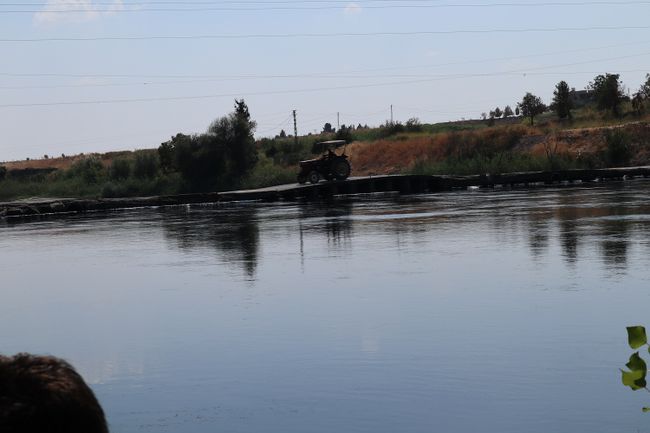
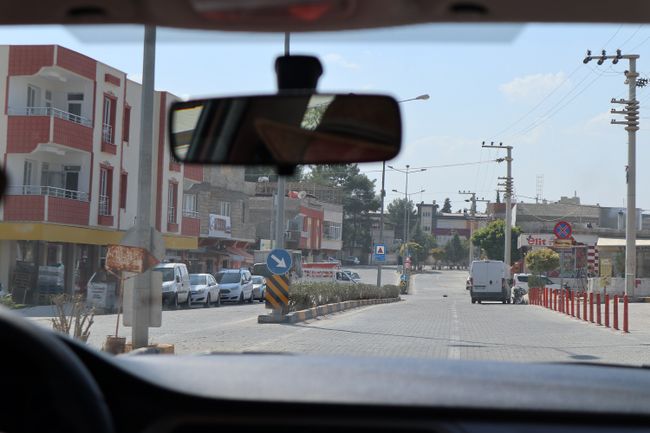
Harpidetu Buletinera
06.09.2019
This is going to be a true food blog here :D But well, our first breakfast in Turkey looked like this:
Bread, butter, fig jam (homemade), olives, tomatoes, feta cheese, and a boiled egg for each person. So, I could continue to indulge my newfound love for figs^^
After breakfast, we headed to Karkamis, a city located 35km away from here, right on the Syrian border. There is an archaeological site there, where excavations have been taking place for several years, and we wanted to visit it. According to Mehmet, it wasn't a problem in terms of safety, but of course, he accompanied us alone to translate.
On the way to Karkamis, we saw endless pistachio plantations on both sides of the road :O It's amazing how green it is here despite the extreme heat, but of course, there is a good irrigation system :) We also passed by a newly built large prison, which interestingly included a playground and apartments (???), and also by a new military base. However, at no time did it feel dangerous to be so close to the Syrian border...
When we arrived in Karkamis, we had an appointment with the mayor to "register" ourselves as visitors. While turning the car, just 100m away from the town hall, we caught a glimpse of the border crossing there. It was completely empty, but when we drove back later, there was a long queue of trucks. Civilians are not allowed to cross the border, but businessmen are. However, there seem to be lengthy checks.
The meeting with the mayor was very special. The fact that we had to register ourselves as tourists sounded strange enough, but it became even more interesting when we arrived. The building/town hall is super fancy with shiny stone tiles and various decorations, more like a 5-star hotel in Side, where I've been before, than a town hall in a city with less than 10,000 inhabitants :D
As a welcome gesture, we were taken to the first floor to meet the "secretary". There were 5 men there, who greeted us friendly but quite formally. I noticed that they didn't shake my hand, and I wondered if it was because they weren't allowed to. I had a similar situation once at a Taekwondo tournament. During the award ceremony of an Iranian athlete, he shook hands with all the referees except me. His coach/translator then explained to me that his religion does not allow him to touch a woman who does not wear a headscarf, even if it's just a handshake.
However, the secretary himself, a small, strong guy with perfectly gelled hair and a golden wristwatch, which he obviously liked to show off, shook my hand, just like the three men did, so I don't know. Maybe I misunderstood the situation ;-)
The door to the mayor's office was equipped with soundproofing made of blue fabric, like the one you find in old armchairs. After the secretary announced us, we were invited to the mayor's office like heads of state, and I felt like I was in a different world for a moment.
The office resembled that of a high-ranking government official and reminded me of the American Oval Office. The walls were adorned with posters featuring quotes from Ataturk, and various gifts from China, America, etc. were displayed. The mayor's desk was on a one-step platform and was made of fine, shiny wood. Visitors could sit one step lower in leather armchairs, and an employee served us tea and water. As I said, it felt like being at a state reception :O (Not that I have any experience with that, but that's how I imagine it at least :D).
Mehmet explained our request (to visit the excavation site) and the mayor made a few phone calls to arrange it for us. The area is fenced off and guarded by the Turkish military, as it is only separated from Syria by the Euphrates. So, we were provided with a guide who would accompany us through the site. While we were waiting for something or just had time to drink the super hot tea, the mayor asked us some rather uncomfortable political questions. For example, he mentioned that Germany built the railway that goes through Karkamis all the way to Syria, but then didn't take care of the maintenance costs. In general, there was a slight aversion towards Germany, as the mayor asked his questions. He also never smiled. After about 15 minutes, it was all over, but it was definitely very special! :D
After the meeting, one of the employees accompanied us to the excavation site. We were strongly advised not to take any photos, which is understandable but a bit of a shame. When passing through the military checkpoint at the entrance to the site, the soldier on duty saluted after our guide signaled to him with the hazard lights that we were registered or something, and we parked the car somewhere on the dusty roadside, past small shooting positions arranged with sandbags, aimed at Karkamis... Strange but well.
The area of the excavation site is huge! It's a small challenge in nearly 40°C heat with no shade, but only for me :D The men seemed quite unimpressed, even though they are over 70 years old (and Jonas is always there when it comes to high temperatures^^). Anyway, at the first site, we encountered four other tourists plus a guide. One of the ladies is an archaeologist or historian or something similar and had already visited the site and written about it. The excavation takes place for 1-2 months per year, and so far, only about 10% has been discovered :O Unfortunately, we chose a rather inconvenient time to visit because the archaeologists on site have covered everything with blue foil and stones since Monday to protect it from the sun until next year -.-
However, they still showed us one of the stones, which had an inscription in non-Egyptian hieroglyphics. The area includes a mixture of Roman (such as a Roman villa), Greek (an acropolis), and "other" influences, which makes the excavation interesting even for the professionals. Former Mesopotamia and its outposts are very, very old and offer a lot of information.
We could often see Syria or at least the tall wall that separates it from the Turkish side, where the Euphrates is not the border. During a stop in the shade (to my relief^^), we asked the guides a few questions about this situation with Mehmet's help. One of them mentioned that his grandfather has "10 hectares of land over there in Syria," but now he can't pass it on to anyone because the rest of the family lives in Turkey. In general, families have been separated spatially by the borders, similar to the wall in the GDR back then. According to the guides, the Turks don't have any problems with the Syrians, and vice versa. There are thousands of Syrian refugees in this area. However, apparently, there are now mainly terrorists stationed directly behind the border, whom they want to keep away through the wall and the closure of the border... On top of a hill, we could even see a PKK stronghold and realized that it's quite a "mess." Distinguishing between good and bad would be too simple. The situation on the ground is much more complex.
After visiting the site, our guide showed us a really cool spot on the Euphrates, where we could relax for a while. The access was a narrow single-lane bridge, about 30cm above the water, which functions as a dam (although the water flows through pipes from above all the time. A real reservoir is under construction). Behind it, there are a few trees, a small well with a pump, and a "barbecue area." So, we refreshed ourselves there and "admired" nature a bit.
Refreshed and a bit tired (at least me :p), we headed back to Nizip, where, can you guess, we were greeted with fresh watermelon, grapes, and figs :) Then we all had coffee (including Jonas and me :O With plenty of milk and sugar, we managed it^^), and there were super tasty cookies too, one kind was like biscuits, which Jonas is now totally into, and some twisted dough with cumin, which I immediately fell in love with.
Now, Mehmet and Jonas' dad are in Mehmet's garden, spraying the trees to kill the beetles, and we're watching TV more or less with Fatma. One thing can already be said, you quickly become integrated into the family. Of course, you're "not allowed" to help and let yourself be served, even if you offer help, but it's completely normal to sit next to Mehmet while he's watching TV or praying, which is somehow really cool :)
Harpidetu Buletinera
Erantzun
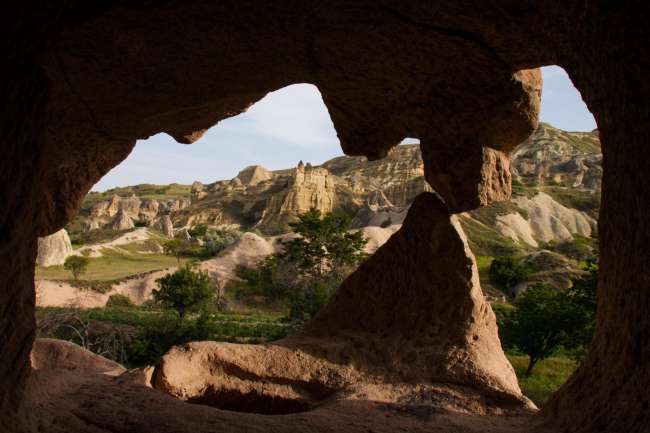
Bidaien txostenak Turkia
